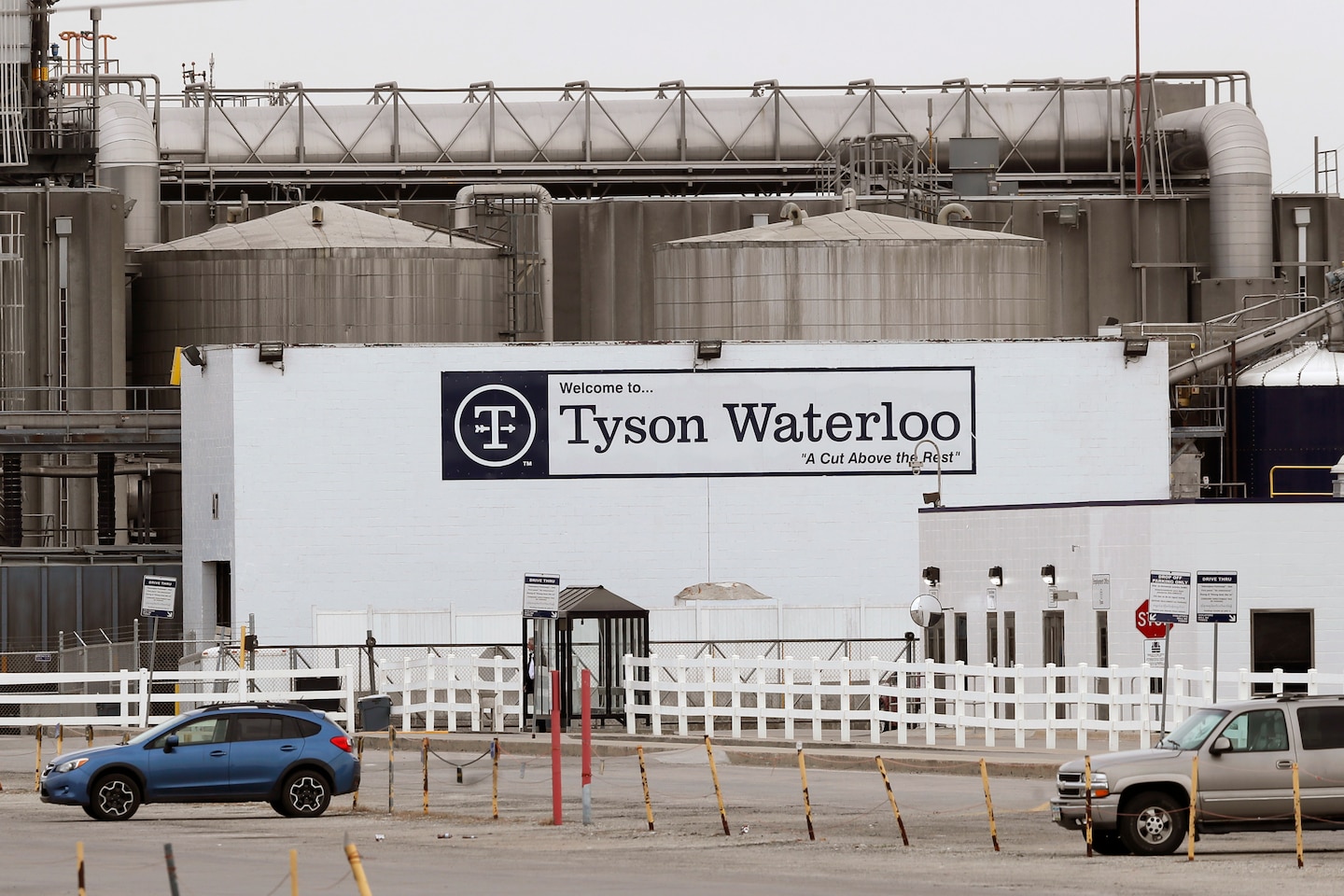As coronavirus ravaged meatpackers, minorities bore the brunt. Now worker groups say Tyson and JBS violated the Civil Rights Act.

“Meat-processing workers are uniquely vulnerable to the coronavirus and the risk of contracting it because of the oppressive and dangerous working conditions in these facilities,” says Brent Newell, senior attorney at Public Justice, which is representing the complainants. “This is about how those black, Latino and Asian workers are more significantly affected than their white co-workers.”
Black, Latino and Asian workers make up about 70 percent of the processing line workers in meatpacking plants but only about 29 percent of all U.S. workers, according to a recent Center for Economic and Policy Research study. However, whites dominate the management at JBS, where 58 percent of managers are white, and Tyson, where 73 percent of managers are white.
Blacks and Latinos are at higher risk of contracting the virus, and also more likely to suffer seriously from the illness than white people because of social inequities.
A machinery operator who chose not to be identified for fear of losing his job at the Tyson Foods Chick-N-Quick plant in Rogers, Ark., said little has been done to spread workers out, stagger breaks or ensure that workers have proper protective gear.
“They have always provided gloves,” he said through a translator. “And they recently provided masks, but it was already too late. There were people hired to make sure there is … social distancing, but they don’t really care for that, so it’s impossible.”
He said he knows dozens of workers who have gotten sick as well as several who have been hospitalized and died. His said his mother, who works at Tyson’s Berry Street Plant in Springdale, Ark., contracted the virus and was off for 10 days and didn’t get paid during that time.
“I’ve heard of some people being paid during their illness, but way more people who aren’t paid,” he said. “I take little precautions like I don’t touch a lot of surfaces and I wear a mask and my mask shield. I’ve also been thinking of quitting. Tyson won’t pay us for staying home and being afraid.”
The company is still reviewing the filing, but Worth Sparkman, a spokesman for Tyson Foods, said, “Our top priority is the health and safety of all our team members, their families and the communities where our plants are located. We’ve transformed the way our plants operate to protect our team members, implementing measures such as symptom screening before every shift.”
Cameron Bruett, head of corporate affairs for JBS USA and subsidiary Pilgrim’s Pride, said the company has taken extra precautions to keep its facilities safe.
“Our efforts have followed, and often exceeded, CDC guidance. We welcome any review of our practices and response to the pandemic, along with the many opportunities we provide our team members from every background imaginable,” he wrote in an email.
A CDC report earlier this month found that 87 percent of workers infected by the virus at poultry, pork and beef processing plants were people of color, and at least 86 workers had died. The report looked at 16,000 cases of the coronavirus among workers at 239 plants in 21 states.
At a moment when American workers, families and small businesses are suffering financial setbacks associated with the pandemic, advocacy groups are raising questions about the USDA’s support of multinational corporations such as Tyson and JBS.
“The complaint is that the USDA should not be giving money to companies that are clearly engaging in racial discrimination,” said Navina Khanna, director of the HEAL Food Alliance, a coalition of 55 organizations representing farmers and one of the complainants.
The USDA did not comment on the complaint.
Suzanne Adely, co-director of Food Chain Workers Alliance, another of the complainants, said companies are not doing enough on social distancing at work and during breaks, and that many plants still do not have enough protective gear.
“They are aware that tens of thousands of workers are getting sick and dying and still they are failing to follow CDC guidelines,” Adely said.
Newell said that the complaint was filed with the USDA because it has oversight of civil rights infractions.
“This is occurring during our national reckoning with racism, and this complaint tells a story of extreme harm in the meat industry that places black and Latino workers in even greater harm.”






